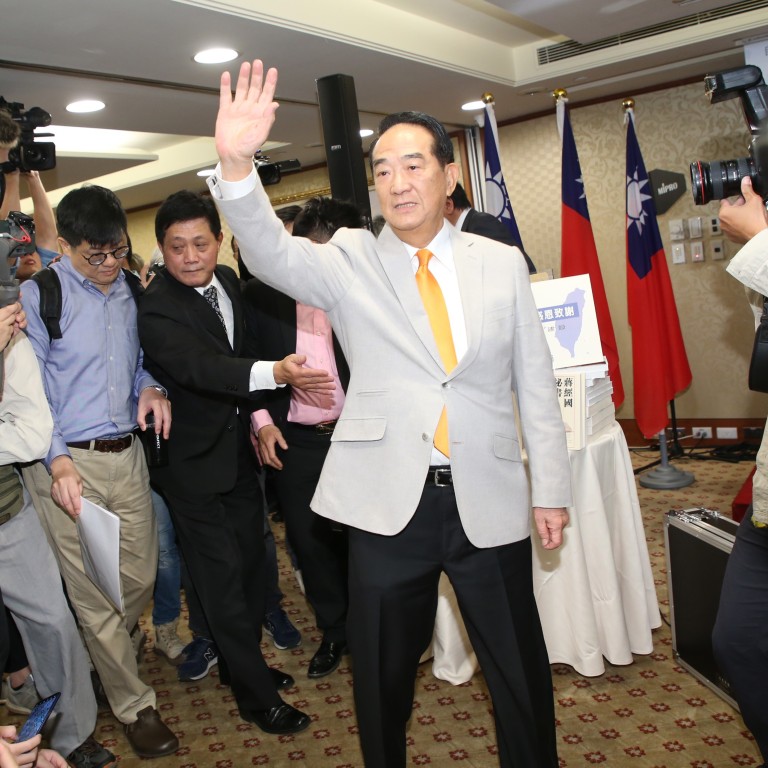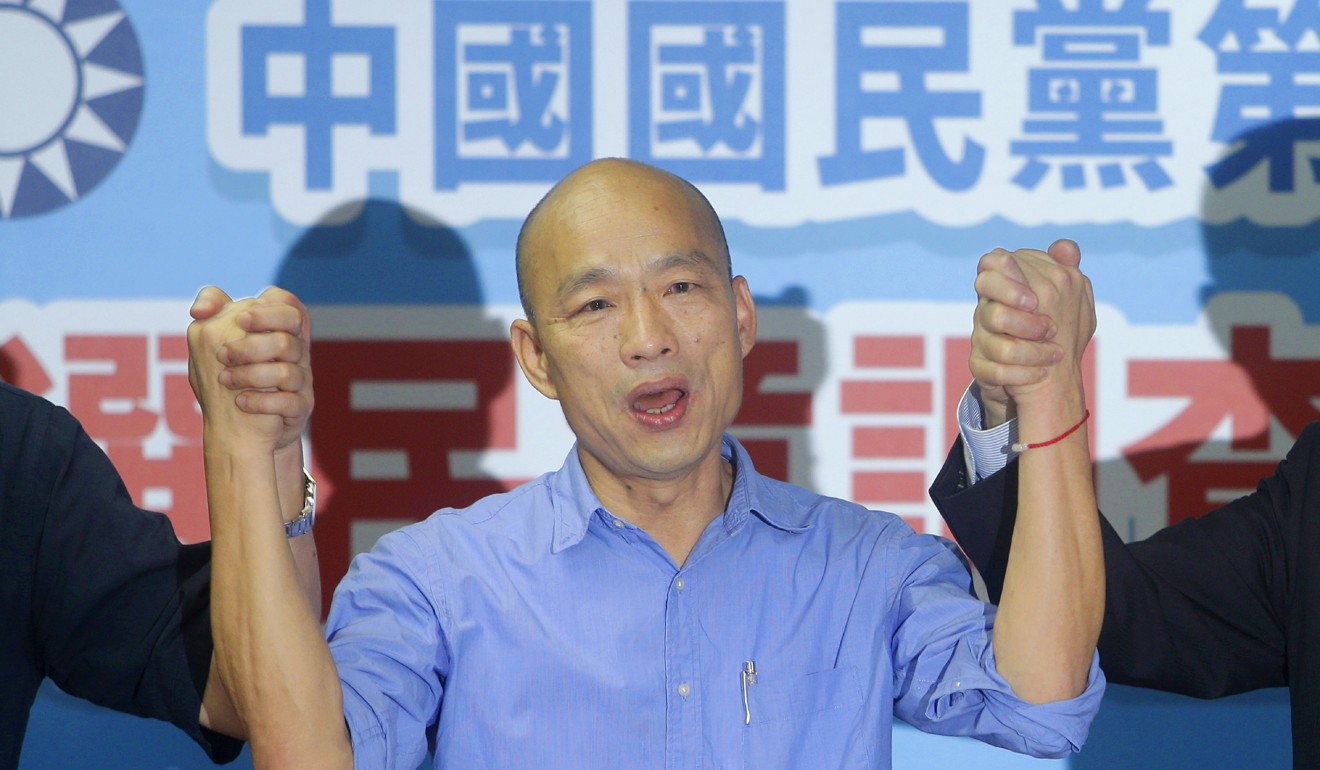
Veteran Taiwan politician James Soong to seek presidency in blow to Beijing’s hopes for unified challenge to Tsai Ing-wen
- Decision by People’s First Party chairman risks splitting the mainland-friendly vote and may help current leader’s chances of staying in power
- Beijing is believed to favour Kuomintang candidate Han Kuo-yu as best hope of removing thorn in its side
Veteran Taiwanese politician James Soong Chu-yu announced on Wednesday that he would make a fourth attempt to seek the presidency in a blow to Beijing’s hopes for a unified mainland-friendly challenge to President Tsai Ing-wen.
The 77-year-old chairman of the People’s First Party remains an influential figure in the opposition “pan-blue” camp, and his decision to stand is another headache for the Kuomintang candidate Han Kuo-yu, who is believed by many analysts to be Beijing’s preferred candidate.
Soong said this would be his final attempt to win the presidency but told a press conference in Taipei he felt “easy and comfortable” about his decision.
“Everybody knows that there is still a long way to go for me to be elected,” he said, “but in choosing to run the last mile of my political career, I don’t feel at a loss or dejected.”

He will campaign on a platform of bridging the political divide between the independence-leaning green camp and mainland-friendly blue camp, cross-strait peace and improving the economy.
He suggested that the sharp differences between the two sides had left the self-ruled island with little leeway for bargaining with Beijing.
The green camp, led by Tsai’s Democratic People’s Party, has refused to accept the one-China principle, which Beijing insists is the only political foundation for continued cross-strait exchanges and peaceful relations.
Taiwan security officials step up monitoring over fears mainland-based citizens will try to influence election
Beijing – which considers Taiwan a wayward province that must return to the mainland fold, by force if necessary – has repeatedly put pressure on Tsai to accept the principle.
It has staged a series of war games in an effort to intimidate the island and poached seven of its remaining diplomatic allies since Tsai became president in 2016.
Soong said if he became president, he would do all he could to make sure that the two sides of the Taiwan Strait respect the differences between their political systems.
The veteran politician has made three previous runs for the presidency and also stood as a vice-presidential candidate.
His first campaign, as a KMT maverick against the party’s official candidate Lien Chan in 2000, split the blue camp and allowed the DPP’s Chen Shui-bian to win.
Soong set up the People First Party soon after that contest and has remained its leader ever since.
Analysts believe his latest challenge will also damage the KMT more than the DPP.
“The KMT candidate, Han Kuo-yu, has been campaigning on a populist strategy, which is effective in absorbing votes from anti-independence supporters or voters who are upset by Tsai’s drastic labour and pension policies,” said Arthur Wang Zhin-sheng, secretary general of the Cross-Strait Policy Association, a private research group.
Former Taiwan premier Chang San-cheng joins KMT ticket as vice-presidential candidate for 2020
But Wang said this strategy was less likely to appeal to more educated and wealthier pan-blue voters, who may favour Soong’s candidacy instead.
An opinion poll released by the association on Wednesday put Tsai in the lead on 48.9 per cent, compared with Han’s 28.8 per cent and 9.6 per cent for Soong,
In previous surveys, Han had the support of around 30 to 35 per cent of voters.
Media reports have suggested Beijing has been trying to use its influence to favour Han, and Wang said Soong’s entry into the contest was not what Beijing wanted to see.
All three candidates will have to officially register their candidacies between November 18 and 22 to appear on the ballot for January’s election.

